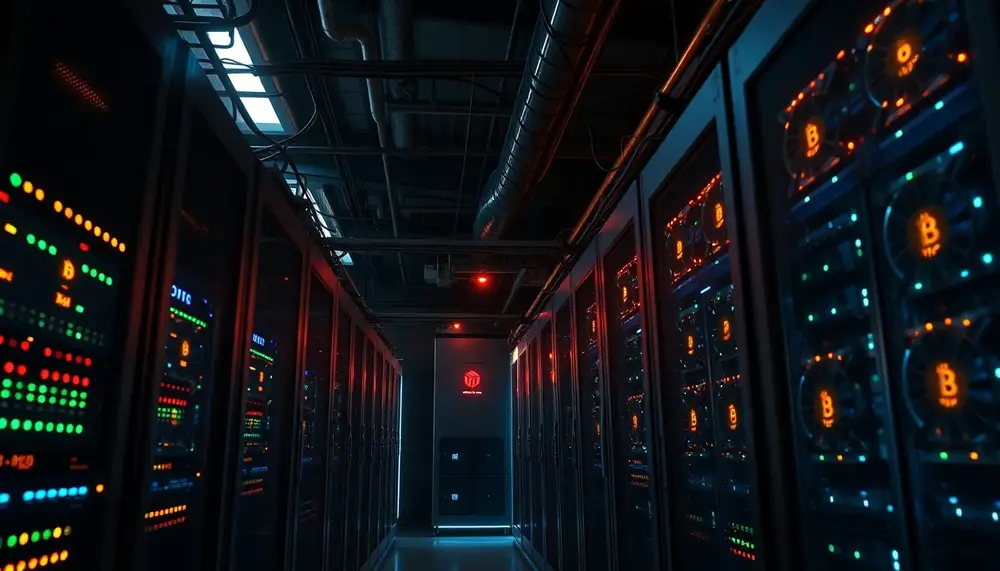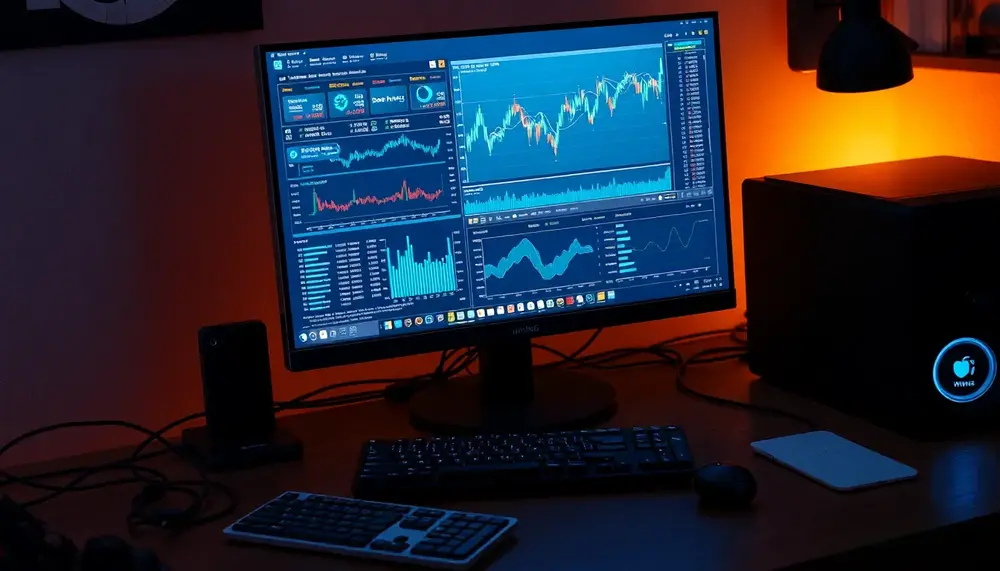Mining
Mining
What is Bitcoin Mining?
Bitcoin Mining is a crucial process within the Bitcoin network, responsible for both creating new bitcoins and verifying transactions. The role of a miner is quite comparable to the role of a gold miner - seeking valuable rewards through substantial effort.
The Basics of Bitcoin Mining
Firstly, it's essential to understand that 'mining' in this context doesn't mean digging in the physical sense. Instead, Bitcoin miners are users who operate mining computers or 'nodes' in a network. They solve complex mathematical problems using specific software.
How Does Bitcoin Mining Work?
Mining involves the usage of computing power to solve a mathematical puzzle, known as a 'proof of work'. This proof is difficult to solve, but its correctness is easy to verify. The first miner to find a valid proof announces it to the network, which then confirms the solution. Once confirmed, the mined block of transactions is added to the blockchain. For this work, miners are rewarded with bitcoins, just as a gold miner is rewarded with gold.
The Importance of Bitcoin Mining
Mining secures the Bitcoin network and enables the creation of new bitcoins. By validating transactions, miners help to prevent 'double-spending.', ensuring the integrity of the Bitcoin network. Without miners, the Bitcoin network would become vulnerable to attacks and fraud.
The Process of Bitcoin Mining
To mine bitcoin, participants need a computer with specialized mining hardware and software. They then join what’s called a mining pool where they combine their computing resources. As the difficulty of mining increases over time, so too should the capacity of the mining hardware to keep up.
Understanding Mining Difficulty
Over time, as more users participate in mining and more bitcoins are minted, the algorithms become more complicated. This is known as increasing 'mining difficulty'. It ensures that the global supply of bitcoins grows at a steady, controlled rate.
Conclusion
In summary, the term mining refers to the process whereby bitcoins are generated and transactions are confirmed. It's a crucial aspect of the Bitcoin network, maintaining its security and integrity, while also controlling the creation of new bitcoins.
Blog Posts with the term: Mining

This guide simplifies Monero solo mining with XMRig, covering setup and optimization to mine efficiently. It explains the benefits of using XMRig, necessary hardware requirements, and how to set up a Monero wallet for secure fund management....

Monero mining with CPUs is accessible and cost-effective due to the RandomX algorithm, which optimizes CPU performance over GPUs; top processors include AMD Ryzen 9 3950X and Intel Core i9-10900K. Benchmarking involves measuring hash rates and power consumption using software...

The article discusses the initial investment required for crypto mining in India, emphasizing costs related to hardware, setup, and software. It also highlights key technical specifications needed for mining rigs, such as GPUs and cooling systems, while stressing the importance...

A mining pool is a collaborative group of miners who combine their computational resources to increase the likelihood of successfully mining cryptocurrency blocks and sharing rewards, essential due to the high power demands that make solo mining nearly impossible. Setting...

Cloud mining allows individuals to lease processing power from remote data centers for cryptocurrency mining, offering convenience and lower upfront costs but potentially reduced earnings and risks of scams. Hardware mining involves owning equipment with greater control and profit potential...

This guide provides a comprehensive overview of setting up an Ethereum mining rig, covering essential components like GPUs and motherboards, as well as key concepts such as Proof of Work (PoW) and hashrate. By the end, readers will understand how...

Real USDT mining apps allow users to mine Tether (USDT) directly from their smartphones or computers, offering a simplified and accessible entry point for both beginners and seasoned miners. These apps feature user-friendly interfaces, automated mining options, real-time earnings tracking,...

Monero mining on AMD Ryzen CPUs is popular due to their high performance and efficiency; this article provides a guide for optimizing these processors, covering hardware selection, BIOS settings, and software configuration to maximize mining profitability. Key considerations include core...

Mining XRP directly is not possible; instead, miners can earn XRP by mining other cryptocurrencies and exchanging them for XRP. This guide covers setting up a secure wallet, choosing the right software like Unmineable or NiceHash, and configuring your mining...

Bitcoin mining apps can transform your device into a mini mining rig, but with the market flooded by both genuine and dubious options, it's crucial to verify platforms like Google Play for reliability through download numbers, ratings, user reviews, and...

Setting up a mining pool involves configuring the correct URL and port settings to ensure efficient and secure operations, with considerations for cryptocurrency type, geographical location of pools, reputation, fees, supported coins, and security protocols. Understanding commonly used ports like...

Bitcoin mining pools are groups of miners who combine their computing power to mine Bitcoin blocks and share the rewards. Joining a mining pool increases the frequency of payouts and reduces the volatility of the mining process, making it a...

This article explores the connection between Bitcoin mining and renewable energy, specifically focusing on solar, wind, and hydropower sources. It highlights the shift towards renewable energy in Bitcoin mining driven by environmental concerns, economic benefits, and advancements in technology. The...

When cashing out crypto from mining, choose your payout coin wisely by considering transaction fees, market volatility, liquidity, and future potential; also understand minimum withdrawal requirements to ensure efficient transactions....

